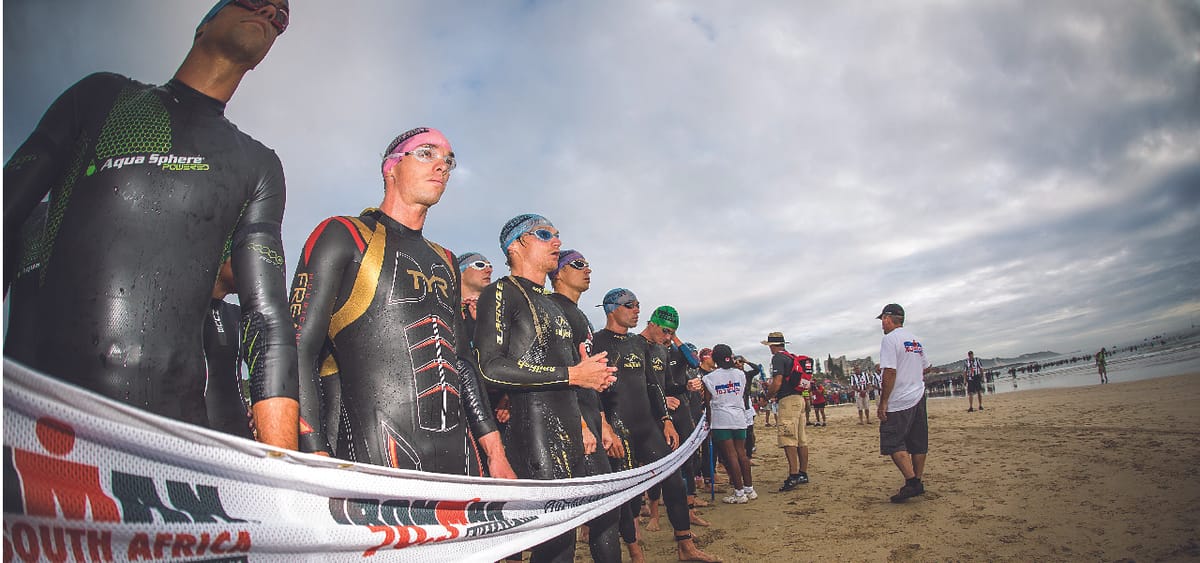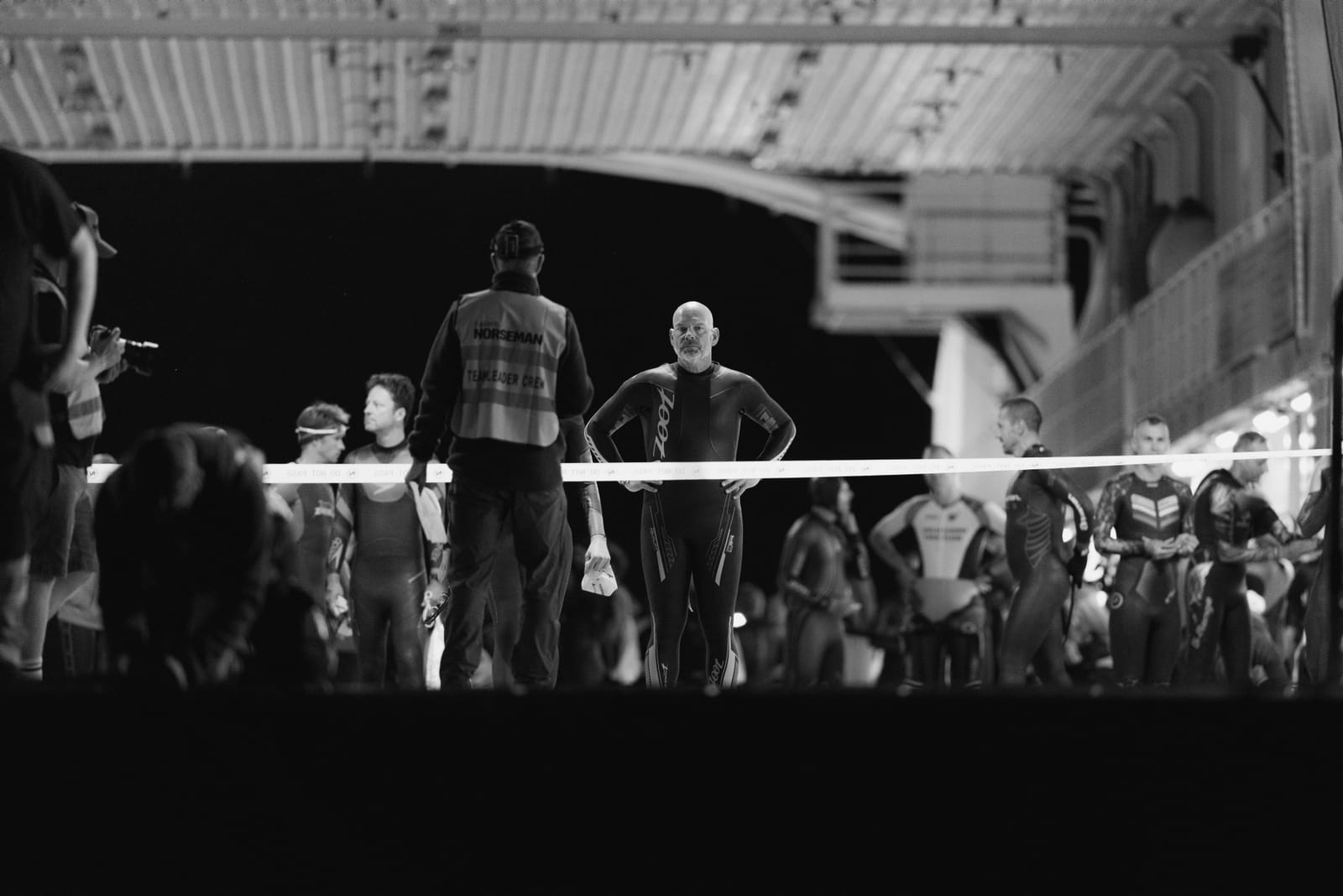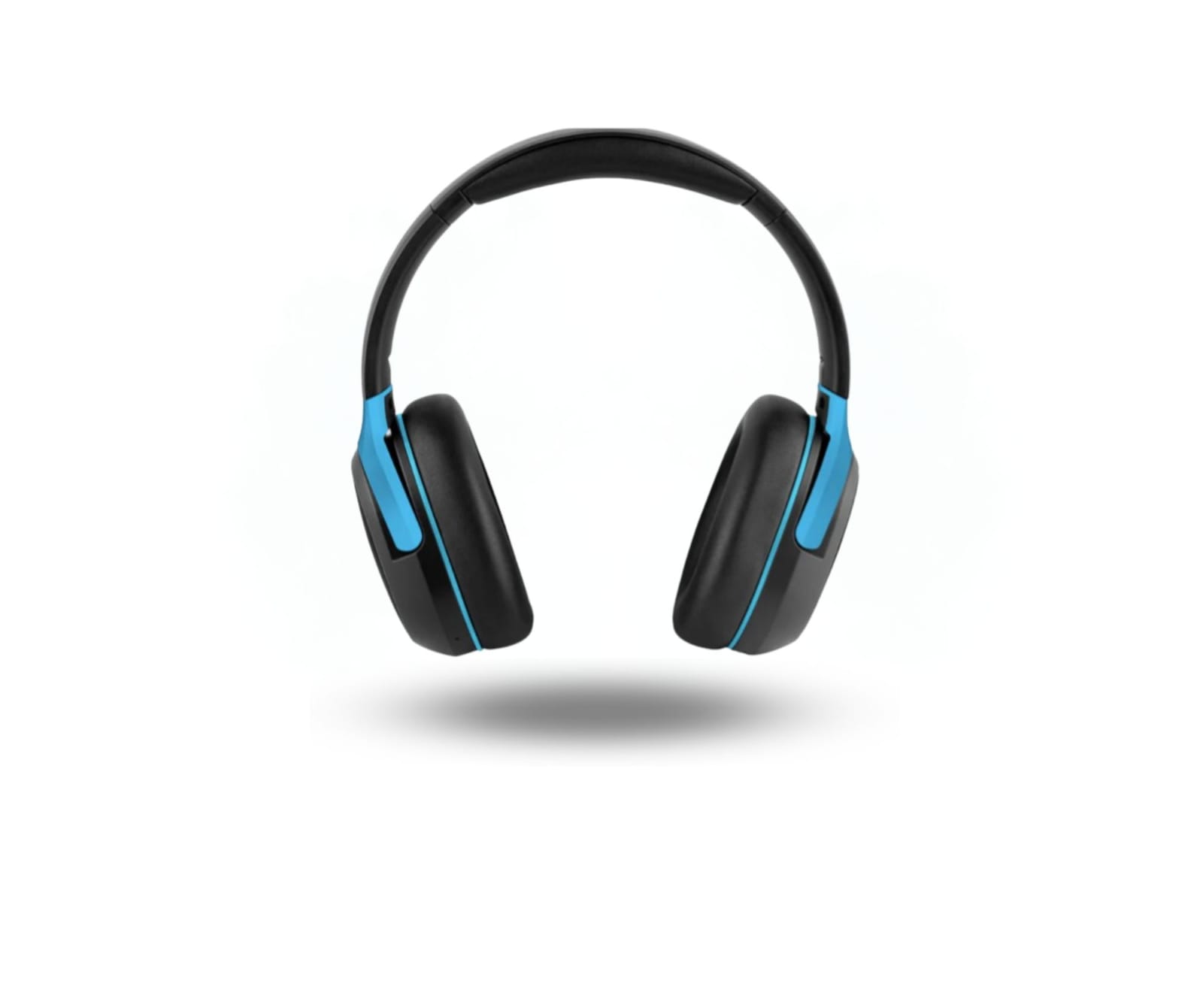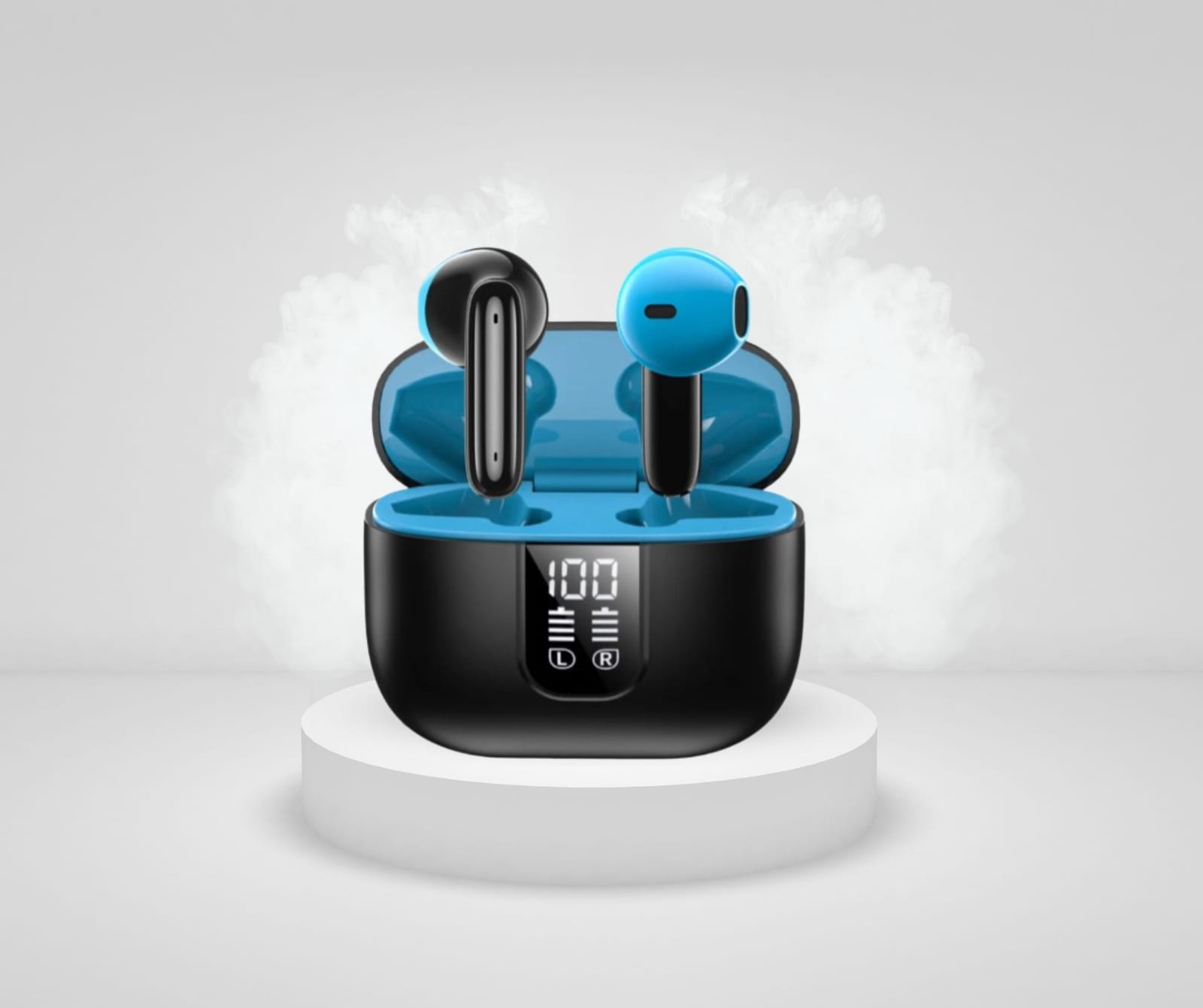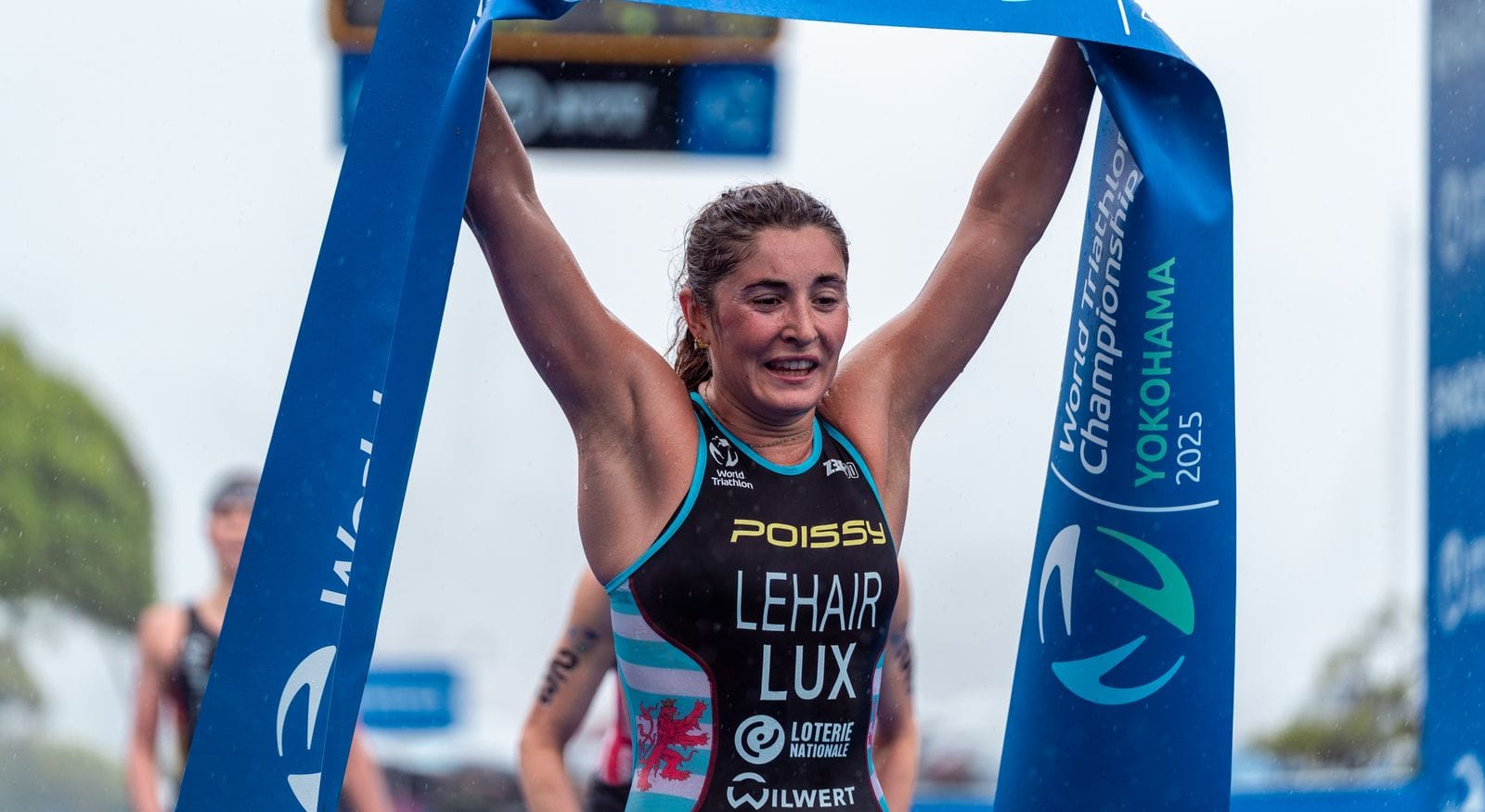Kate Strong loves triathlon, and she’s incredibly good at it too. She’s also an ace at engineering and writing, is involved with charities, and loves cooking. Trizone caught up with this incredible women to chat about goals, TEDx and ditching excuses.
Ditching a wedding leads to triathlon
“Will you marry me?” is always a life-changing phrase, but for Kate Strong it made her turn away from the man who asked it, and look to sport for solace. “My then boyfriend asked me to marry him. It took me until six days before the wedding to realise I didn’t want it. I started running for stress relief and realised I’d left my dream behind ten years ago when I started, then stopped triathlon in 2003,” Kate told Trizone.
After this life-changing moment, Kate found her drive was stronger than ever. “I heard the saying ‘you’re the youngest you’ll ever be today’ and it moved me,” she said. “I really realised there’s no excuses, now is the time to start.” Kate plunged head first into training and just eleven months after her first triathlon, she won her age group at the ITU World Championships in China in 2014. “I was driven by a desire to live by my words that every minute counts,” Kate said. “I found myself in China and I won my age group, but I was never motivated by winning. I just wanted to be my best on the day. It just happened that on the day, my best was number one.”
Kate Strong achieves 24-hour cycling world record
Progressing from doing her first triathlon to winning her age group in less than a year was an incredible feat, but Kate wanted a world record. “I did the record attempt as it was just me against myself. I want to do things because I love them, not because I want to be world champion,” Kate continued. She chose a challenge no woman had ever achieved; cycling for 24 hours on a stationary bike. She cycled 454km in 24 hours, but it was far from easy. “I’m wiggling around on my seat just thinking about it,” Kate said, giggling as she remembers the discomfort of 24 hours on a bike seat.
As Kate had been working full-time in the lead-up to the record attempt, she had only ridden eight hours in a row at the time. “I had to strengthen my brain. It was about overcoming the obstacles of each hundred kilometre and making it through the night. It was an amazing experience,” Kate recalled.
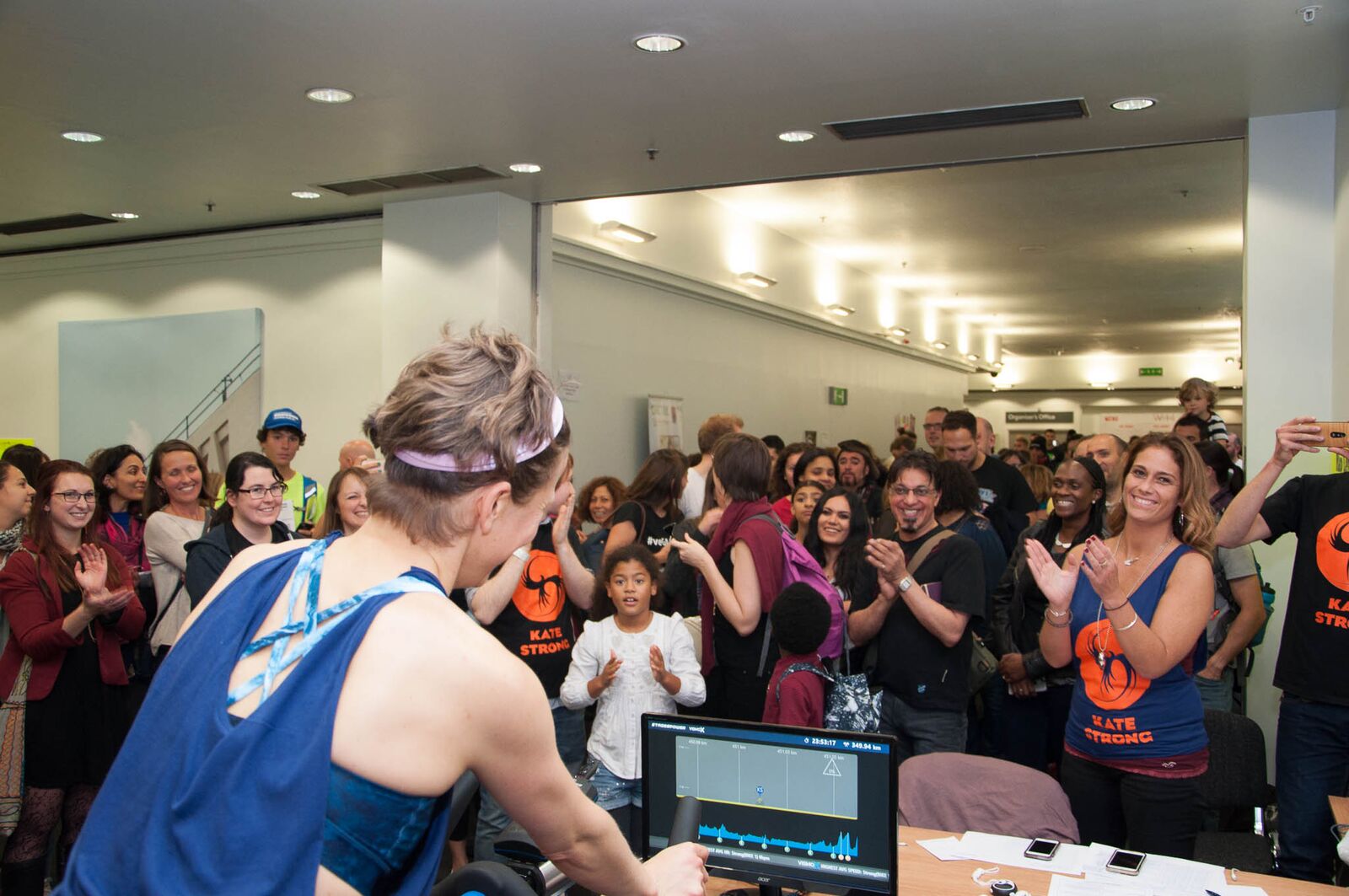
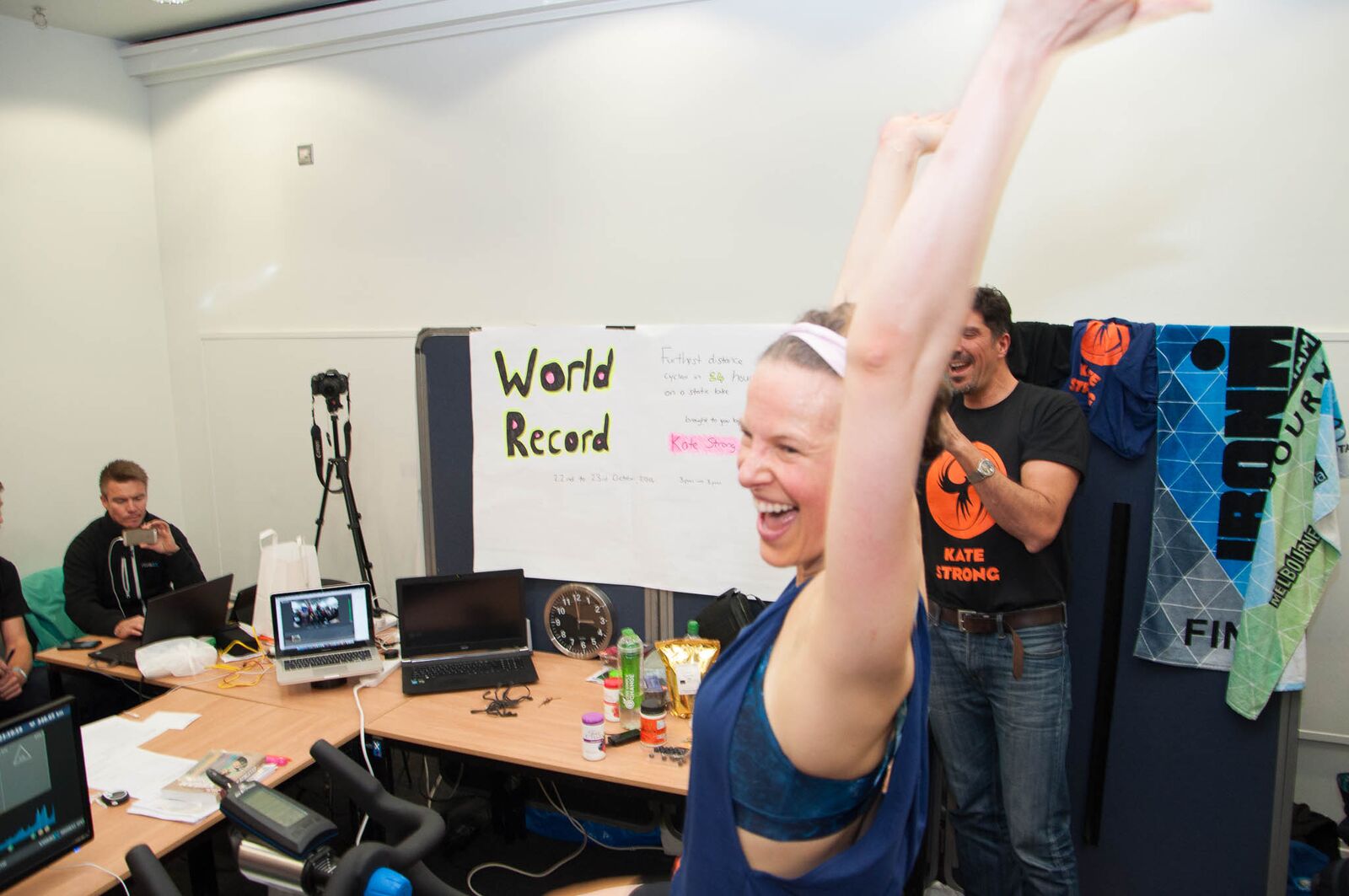
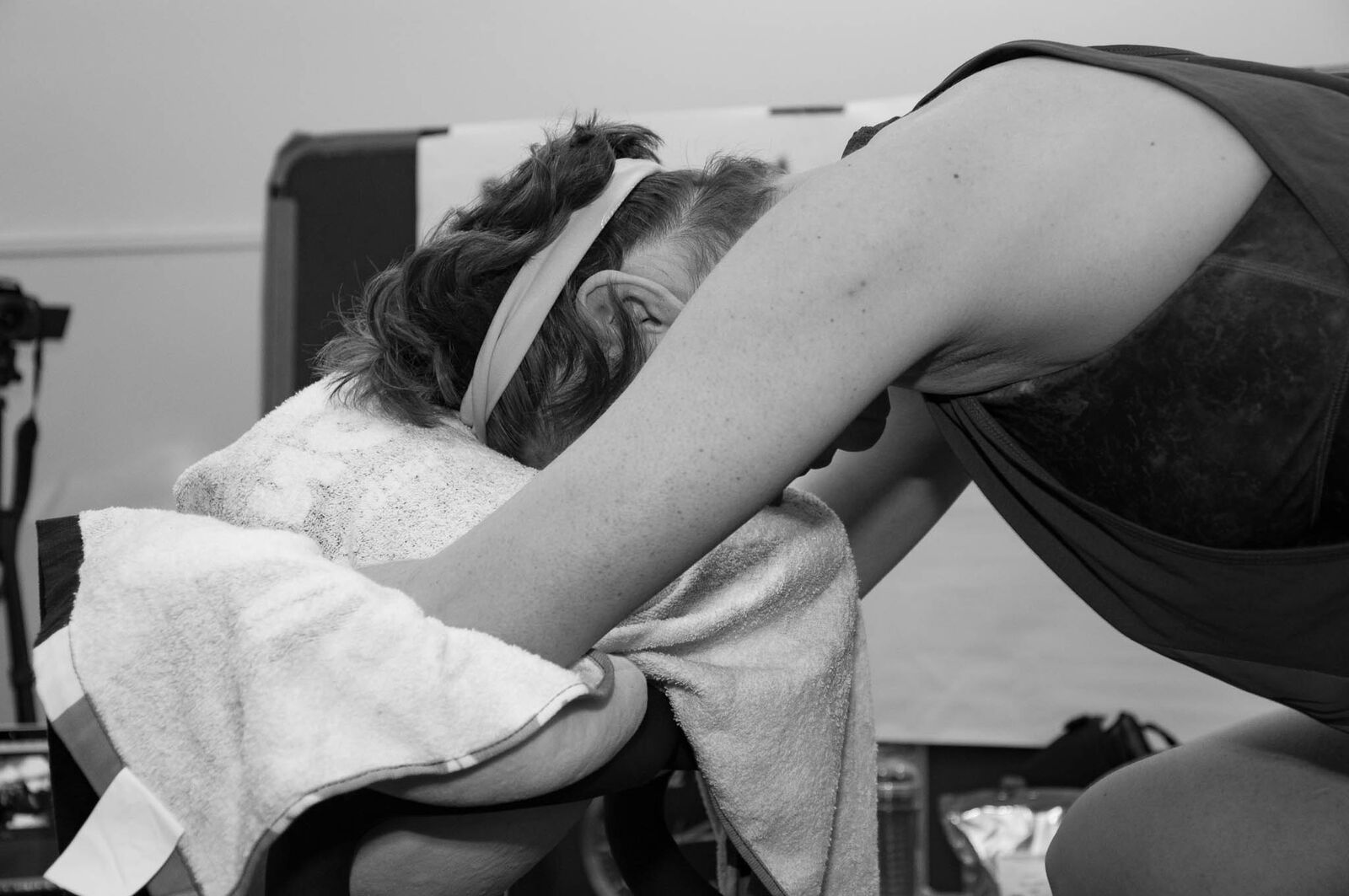
TEDx cements Kate’s goal-setting structure
“I don’t’ have a massive amount of followers, but we’re a very engaged community. I’ve couch surfed with some of them who I’ve never met! It’s more of an online friendship really,” Kate said modestly. She also used her social media presence to help promote skin-safe natural products she loves, as well as creating awareness around her Christmas charity endeavours at Cardiff hospital. “If I can change someone’s mindset with a smile or some joy and gifts at Christmas, then that’s important. The plan is to launch bigger next year.”
Ditching dairy abolishes Kate’s asthma
Driven by enjoyment and achieving personal goals, Kate changed another huge aspect of her life by becoming vegan. “It wasn’t a conscious change, I meandered into it,” Kate said. As a runner, neighbours could hear her as she rounded corners in the area due to her heavy wheeze. “They could hear me a block away!” Kate said. “I decided to try an experiment by running five lots of one kilometre sets on day one, and day five, and seeing if there was a difference after eliminating dairy. After just four days, my asthma and my wheezing had gone, and I was running five seconds faster per kilometre.”
Kate had never considered her diet could have an impact on her running, and started to record how she felt after eating different things. “I’d write down what made me feel brighter, made my legs feel lighter and what helped me sleep better, and also the things that made me feel bad,” she explained. “After looking at all those things and chatting to friends, I figured out I was vegan.”
Despite stumbling upon a vegan diet, Kate is now very conscious of her decision. “I’m aware of the environmental impact of animal protein farming and I’ve ticked every vegan box to do with why I am vegan. But initially it was just about being able to run faster.”
Kate’s race nutrition is better than yours
As a triathlete, Kate requires huge amounts of energy and nutrients. She creates all her pre, post and mid-race nutrition using whole foods. “Before a race I love a smoothie. I blend almond milk, spirulina, Chlorella, berries, nutritional yeast, chia seeds, poppy seeds and oats if I’m hungry. You just can’t go past a good smoothie,” said Kate.
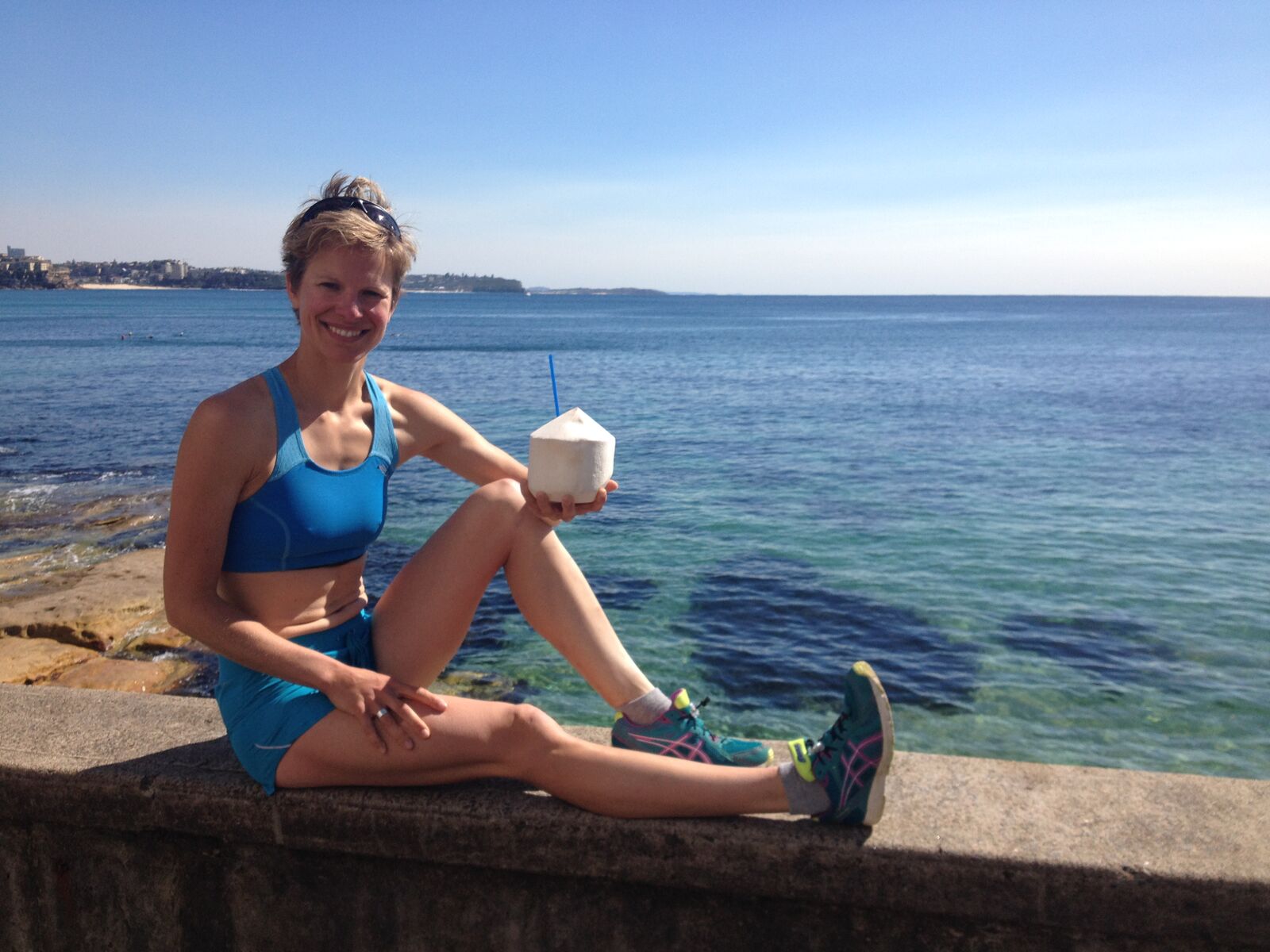
If you’ve ever seen and athlete earn a DNF due to insufficient nutrition, you know how ferocious insufficient mid-race nutrition can be for an athlete. Kate combats this in her own way by creating her own super energy balls. “I make my own food and ingest 85% on the bike,” she added. “I blend dates, ground linseed, chia seeds and some lemon juice with agave nectar to bind it. For longer races I have rice balls with paprika and goji berries and sometimes half a banana. If I’ve got some dried fruit and apricot I’ll add them in there too.”
Despite Kate’s incredible achievements – which include becoming a dive master, a stint as an engineer and firm plans to finish the book she’s writing – she remains grounded. “After I did that first IRONMAN 70.3 in 2003, before taking a huge break, the tick box of life took over,” she noted. “Even when I returned to triathlon, I found I was looking for goals outside myself, rather than using my internal drive. Now, I do things for enjoyment. My biggest fear is not living in the moment.”
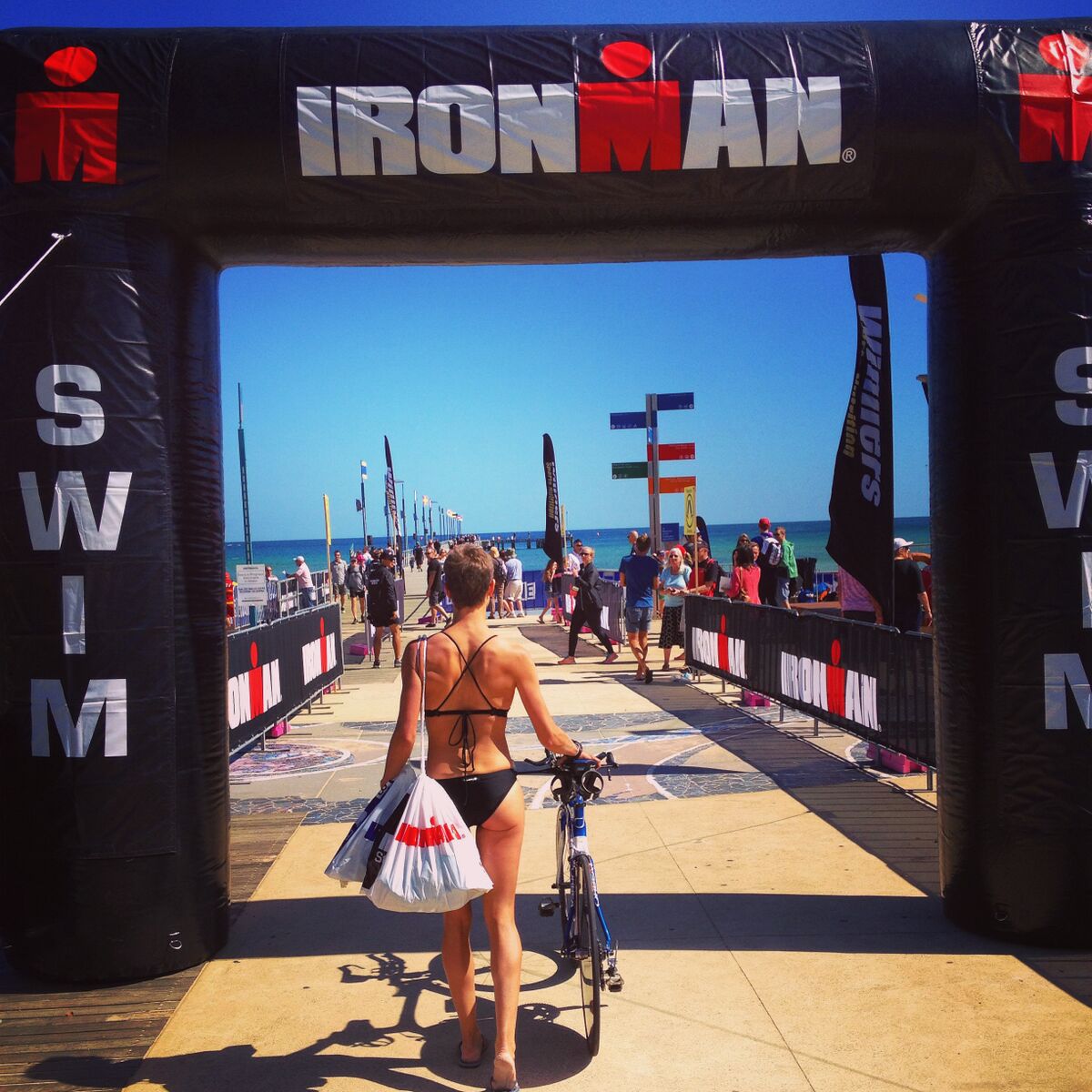
5 Tips for goal setting in the New Year
- Don’t set a goal to start on 1 Jan! Set a goal to start when you think about it – now is always the best time to start, not a random date in the distant future!
- Dare to dream big – don’t limit your potential before even starting. If your goal is to complete an Ironman, don’t lower your goal to a 70.3. Your goal is your goal and anything lower will leave you still wishing you’d aimed higher.
- Remind yourself daily of why you want your goal. I have a vision board showing what I want to see/feel/have when I achieve my goal: Pictures (courtesy of a Google search) are usually more powerful than words for motivating you and keeping your ‘why’ alive.
- Break-down what you need to do into small daily steps. Now you have the big picture, it’s important to not feel overwhelmed. To do this, break your goal down to small steps. E.g. I’ve a goal to do a 1-handed push-up (strange but true!) so on day 1, I do 1 push-up and add 1 push-up every day. By day 30 I’ll be doing 30 push-ups and can work on technique for my (weird) goal!
- Do your best every day. Some days I have a mountain of energy and can tick everything off my list before lunch, and other days, I am lacking energy and the pressure of other areas of my life (work, family…) builds up leaving me limited time to work on my training. In these times, it’s important to still give 100%, and understand that 100% today might be less than another day – just accept this fact, and do your 100% tomorrow.



